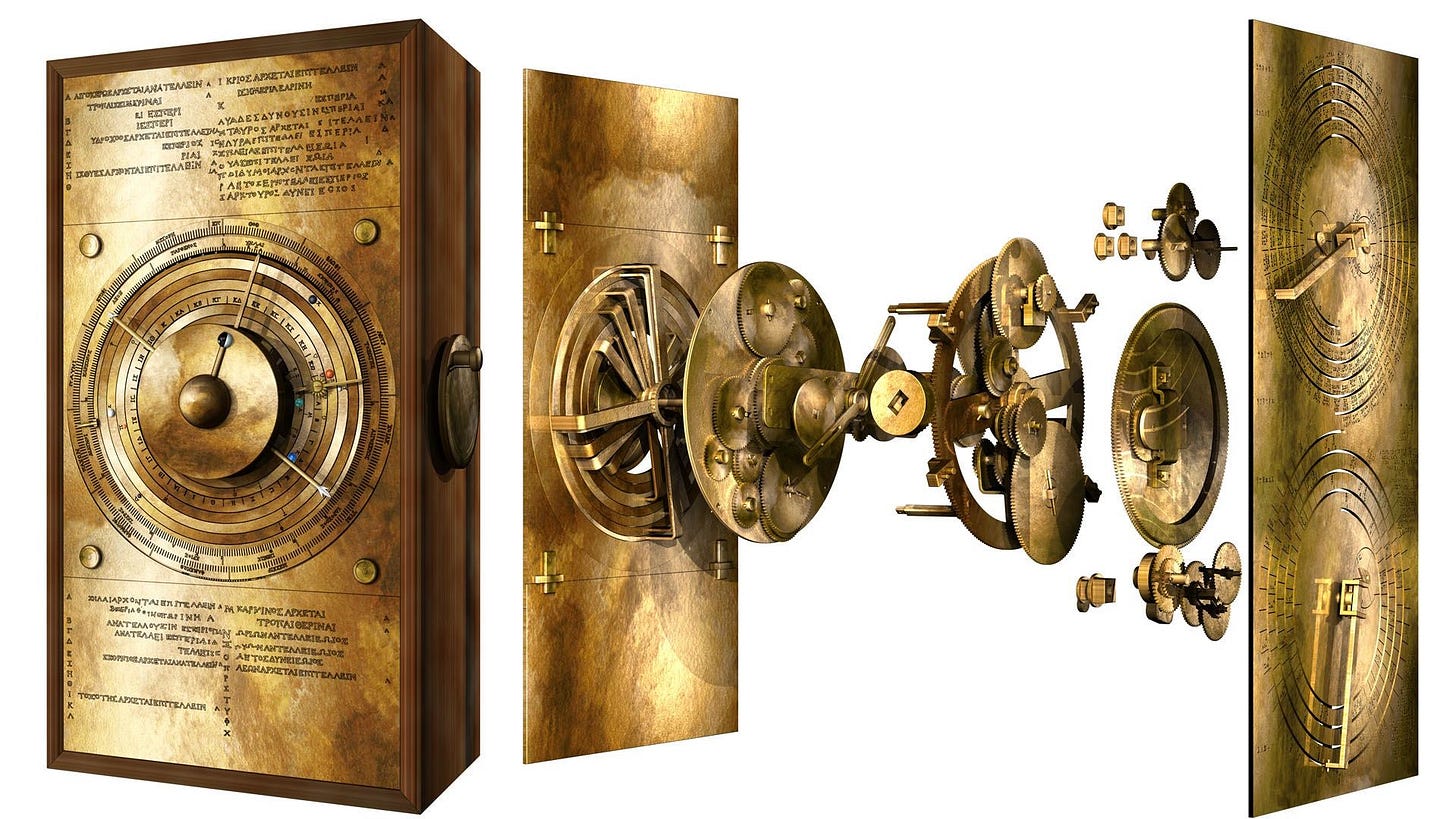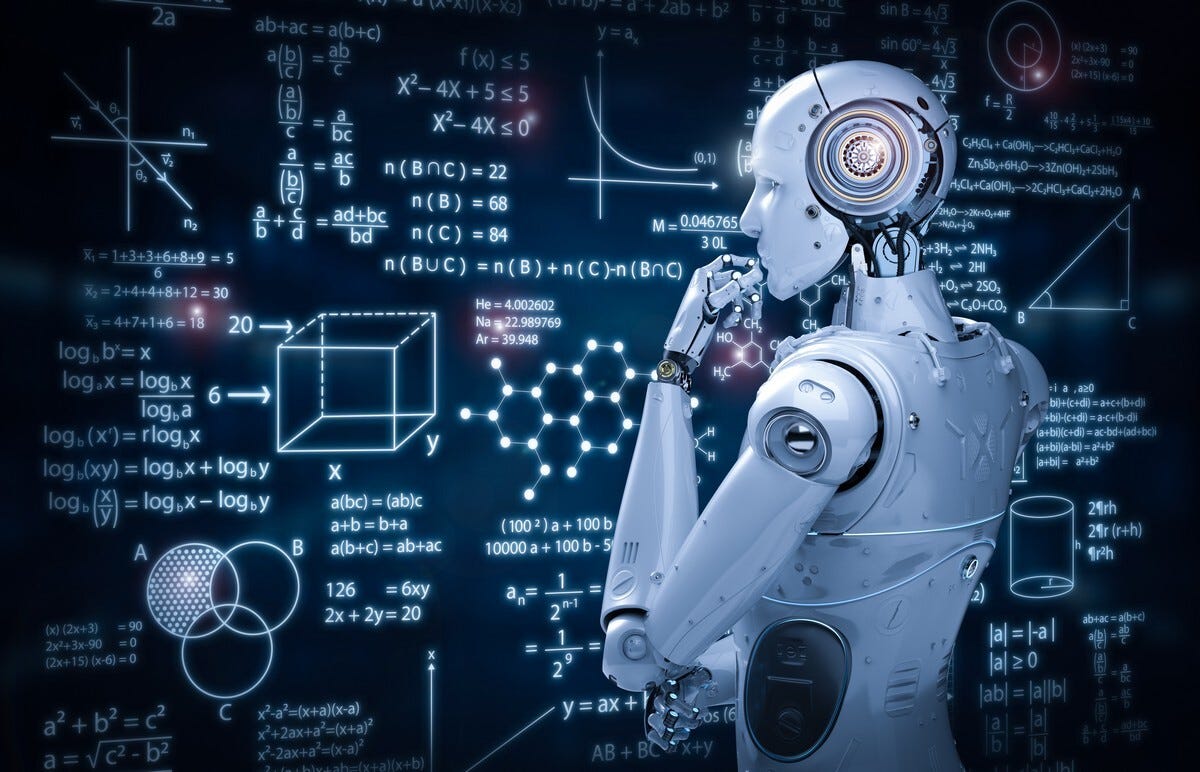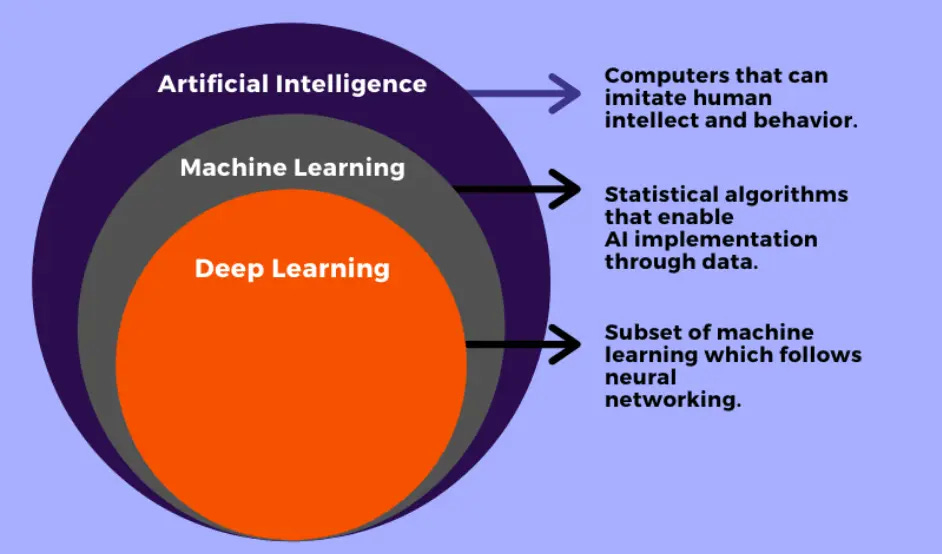Vol 4: Artificial Intelligence History, The Technology of the 4th Industrial Revolution.
Let's talk about AI, by starting with the history of Artificial Intelligence.
Hey Friends,
Trust you all had a great week?
As we all know true innovation is hard to find, as “few things come out of nothing” they say, (I’m referring this quote to the subject Creation or as scientists call it The Big Bang). Okay, so let’s take the now ubiquitous selfie, for example, the format or the way we make self-portraits may have changed over time, but the idea of making self-portraits is hundreds, if not thousands of years old. The same is true of many inventions that we typically think of as modern, some of which have precedents dating back to over 4000 years ago, an example is the Wheel.
Computers have long been before the term “Artificial Intelligence” came to be used, the idea of a ‘machine that thinks' dates back to ancient Greece. More than 2000 years ago, Greek scientists created a mechanism that used brass gearwheels to predict the movements of the sun, the moon, and probably most of the planets, essentially inventing the world's first computer. The artefact was discovered among wreckage retrieved from a shipwreck off the coast of the Greek island called Antikythera in 1901, and in 1902 it was identified as the Antikythera mechanism generally referred to as the first known analogue computer.
Our world is changing in many ways, and one of the things that will have a huge impact on our future is Artificial Intelligence-AI, it is going to bring another industrial revolution! Previous industrial revolutions expanded human’s mechanical power, this new revolution, this second machine age is going to expand our cognitive abilities, our mental powers, computers are not just going to replace manual labours, but also mental labours.
AI has been growing exponentially in the past decade, it has already been touching our lives in ways that you might not notice, for example, every time you go on google search, some kind of AI is being used to predict your questions and give you the best result. Every time you ask Siri (iPhone users) a question or Google Assistant (android users) a question, they both use a technology called voice recognition technology and natural language processing, all these are embedded in Artificial Intelligence. AI will probably be one of the biggest scientific breakthroughs in the 21st century.
So what is Artificial Intelligence?
In simple terms, Artificial Intelligence involves using computers to do things that traditionally require human intelligence.
John McCarthy (revered as the father of AI) defines it as “the science and engineering of making intelligent machines, especially intelligent computer programs. It is related to the similar task of using computers to understand human intelligence, but AI does not have to confine itself to biologically observable methods."
The backbone of Artificial Intelligence is Machine Learning-ML, the term is self-explanatory meaning “we want to make machines to learn based on its knowledge and by itself make decisions.” The overall goal of Machine Learning is to improve the machine’s performance on certain tasks like; Image recognition, Self-driving cars etc. Deep learning is the subset of ML, deep learning is basically how deep the machine is learning, it’s an evolution of machine learning.
How it all started;
Alan Turing, a British computer scientist who worked to crack the ‘Enigma’ code which was used by German forces to send messages securely during world war 2, he and his team created the Bombe machine that was used to decipher Enigma’s messages. In the 1950s, he wrote a paper titled “computing machinery and intelligence” he posed a question in the paper saying; “I proposed to consider the question, ‘Can machines think?’”
In 1956, American computer scientist John McCarthy organized the Dartmouth Conference, at which the term ‘Artificial Intelligence’ was first adopted. He is widely described as the father of AI. In 1958 he created the Lisp programming language, which became the standard AI programming language and continues to be used today in robotics and other scientific applications and major internet-based services, from credit-card fraud detection to airline scheduling.
The first Artificial Intelligence lab was established at MIT (Massachusetts Institute of Technology) in 1959, other research centres including Stanford University popped up across the United States to explore the potentials of AI. Researchers Allen Newell and Herbert Simon were instrumental in promoting AI as a field of computer science that could transform the world, both men work to create computer models of human problem-solving.
The current systems that are capable of running artificial intelligence are inspired by the brain, the same way aeroplanes are inspired by birds. Today, logic, knowledge and learning are deeply embedded in machines, that doesn’t mean computers are behaving or thinking like humans, they still use a lot of data to appear intelligent, we humans use adaptive learning and experience, we don’t depend on pre-fed data like the ones required for AI.
I hope you enjoyed learning, to be continued next week.
Enjoy your weekend!
Faith.
My Favourite Things This Week
It was nice to learn that we once had a supersonic transport system, faster than the speed of sound, watch this video to learn more about the commercial passenger plane called Concord, and why it had to be retired after almost 30 years of being in service to us.
Quote of The Week
"every aspect of learning or any other feature of intelligence can in principle be so precisely described that a machine can be made to simulate it."
-John McCarthy
Fun Fact!
On self-portrait, the Dutch painter Vincent van Gogh, one of the most famous and most prolific of self-portraitists drew and painted himself more than 43 times between 1886 and 1889. Ladies, how many selfies have you taken this year alone?







The fun fact caught me.
I'm amazed by the level of work you put into these researches.
Thank you for sharing your knowledge tank with the world😊.
Keep digging!
thanks for sharing this
it's important to know the world is advancing and keep track of every activities going on the earth
thanks again for this piece of information..
well done MAN!